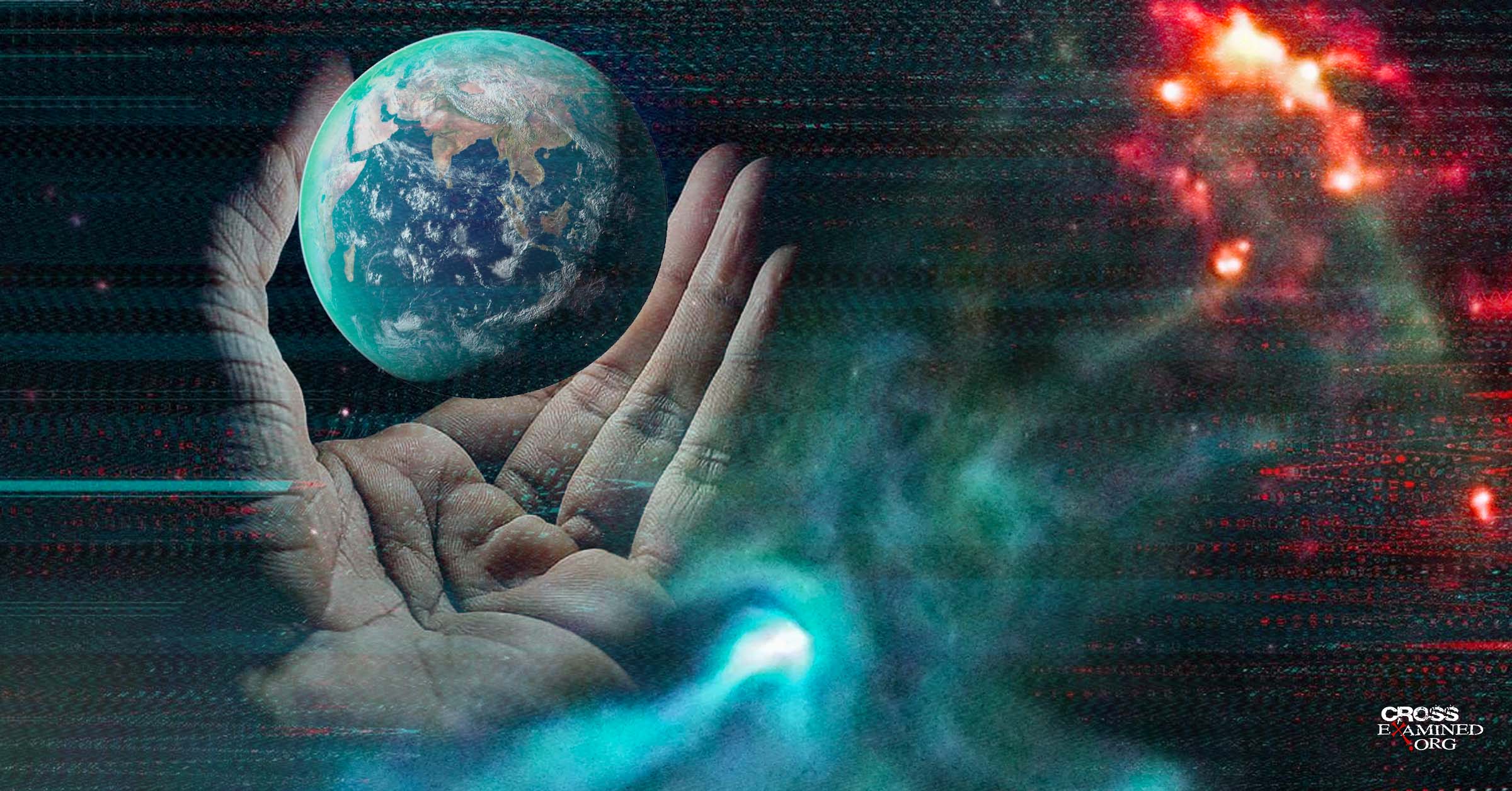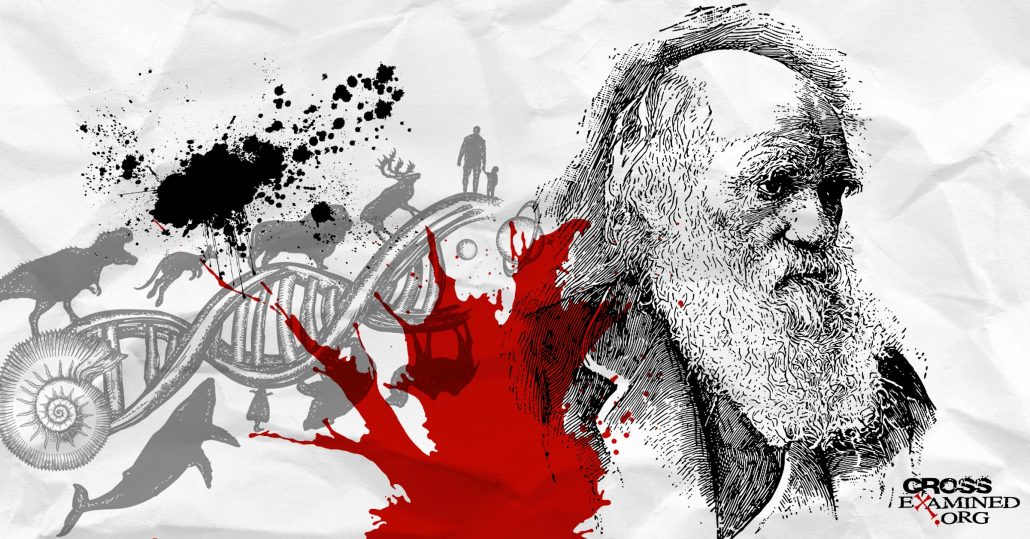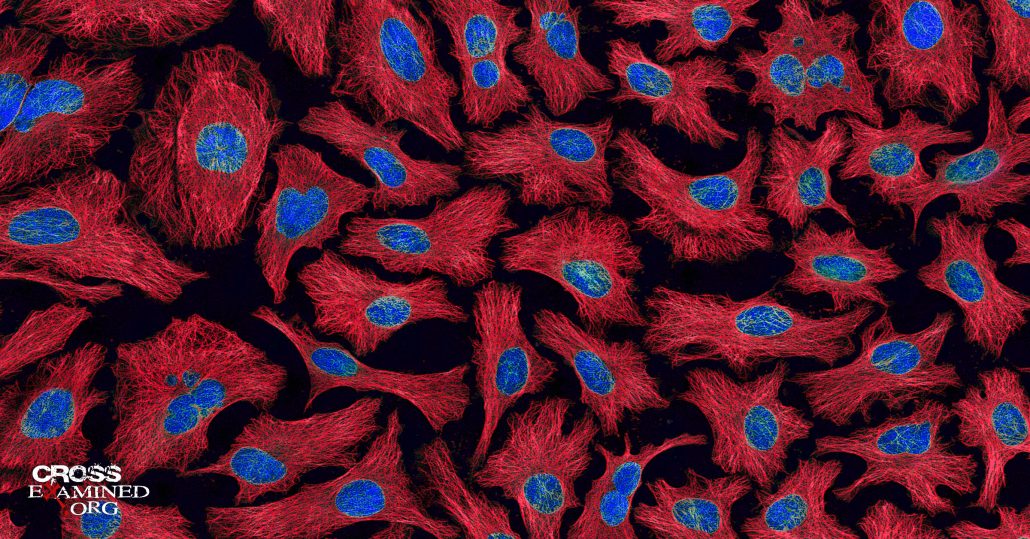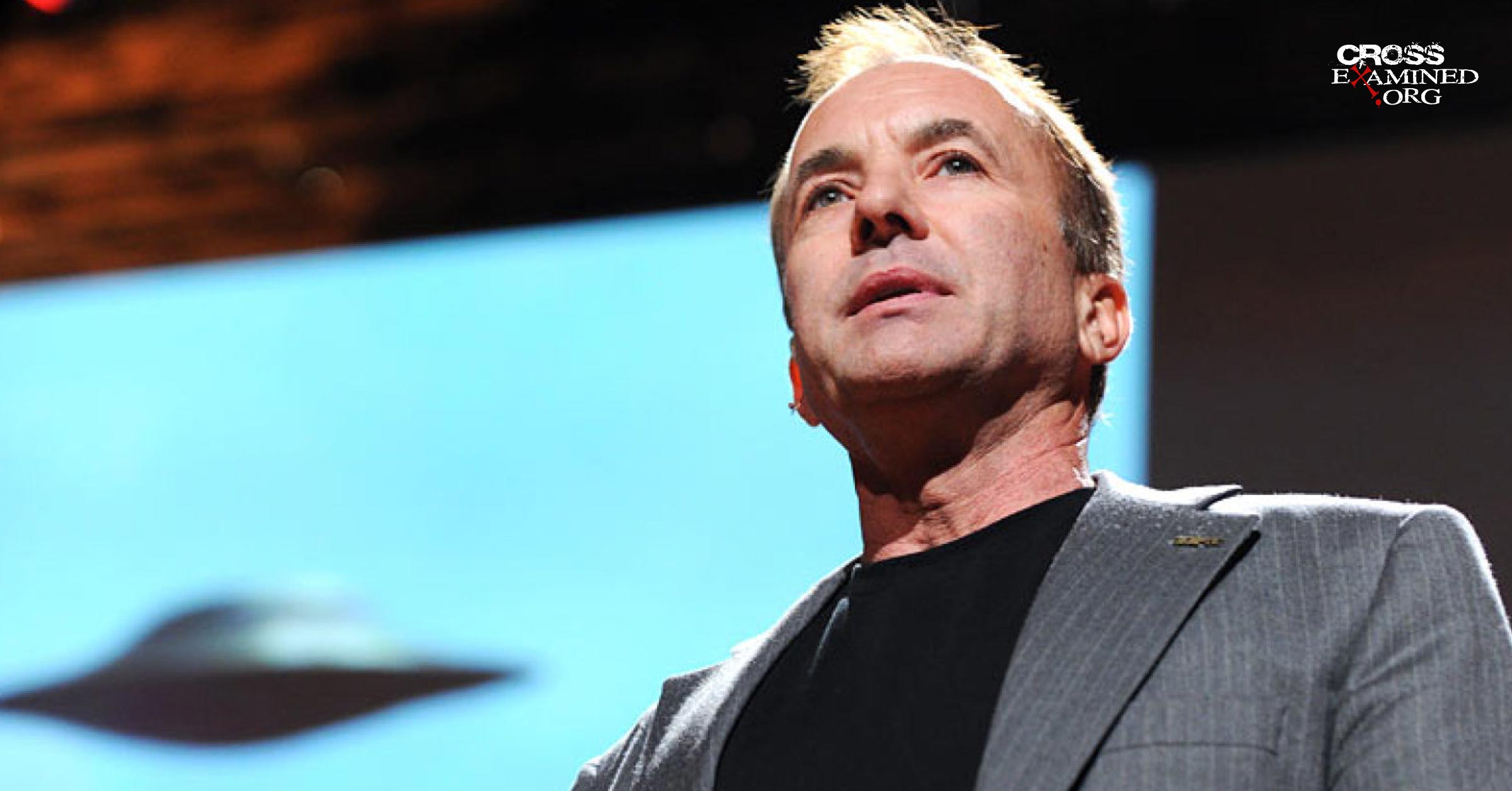by Bob Perry
There is, and probably always will be, a debate going on between sincere Christians about the age of the Universe. I think I’ve made my position on that issue very clear. But at the core of the disagreement between the so-called “Old Earth” (OE) and “Young Earth” (YE) Creationists is their respective views of “Death before the Fall” of Adam and Eve. I fully understand the stridency on the side of my YE friends in this regard. After all, this topic is vitally important to our understanding of the entire plan of salvation. But the YE paradigm insists that the original creation was a Perfect Paradise in every way. I think they’re dead wrong about that. And my reasons are theological. Was God’s original creation perfect? I think it was. But not in the way my YE friends insist it was. It wasn’t a perfect paradise, free of death and suffering. But it was perfectly designed to achieve God’s eternal purposes. That’s a far different thing.
The Meaning of God’s “Very Good” Decree
At the center of this debate is what God meant when He declared His creation to be “very good” in Genesis 1:31. On the YE view, there is no room for interpretation of this phrase. The reasoning is straightforward. Death isn’t good. And if you think the Earth had been around for a few billion years before Adam & Eve showed up, the obvious implication is that there would have been a whole lot of “death before the fall.” God would never have created such a place. He certainly wouldn’t have called it “very good.”
Even worse, if there was death before the fall, that seems to negate the very reason that humanity needed a Redeemer. Romans 5:12 states very plainly that “… sin entered the world through one man, and death through sin …” In other words, there was no death before the fall of Adam & Eve. To say there was is to ultimately negate the very reason for which Christ had to die on the cross!
This is a big problem that needs to be addressed. I get it. And that’s why I am empathetic to the objection to an old universe with lots of death before the fall. We have to be very clear and careful about how we approach this issue.
The “Perfect Paradise Paradigm”
To do that, we should first look at a summary of the YE position. In his book, Peril in Paradise (available below), author Mark Whorton lays out five basic tenets of what he calls the YE “Perfect Paradise Paradigm.”
- When God declared His finished creation “very good,” He meant that it was perfect in every conceivable way.
- Eden was the embodiment of the Creator’s ideal intentfor His creation.
- Man’s sin thwarted God’s plan, shattered His ideal intent, and ruined all of His perfect creation.
- God introduced the physical death of man and animals as a punishment for sin.
- God instituted the plan of redemption to reverse the effects of Adam’s sin and restore all things back to their original intent.
This is an outline of the view most of us have probably learned about the Garden of Eden in Genesis 1. I know it’s what I was taught. But the more I’ve studied the issue, the more I found it wanting.
Problems With A Perfect Paradise
To be direct, the first point in the list above is obviously false. The creation was not perfect in every conceivable way. I say this for a few reasons …
- Satanwas in the garden
- The garden contained the “Tree of the Knowledge of Good and Evil”
But 1 Corinthians 2:9 tells us that, “No eye has seen, no ear has heard, no mind has conceived what God has prepared for those who love him.”
If that’s the case (and I believe it is), the Garden of Eden could not have been a “perfect paradise.” Not if something far better is coming in the future. And there’s more:
- Adam was always required to tend to the Garden — the fall did not impose that work on him, it just made his work more
- The curse on Eve did not originate the pain of childbirth, it increasedthe pain she would experience.
For each of these reasons, it seems pretty clear that the garden could not have been a place of “absolute perfection.” Satan, and evil, and pain cannot exist in any place that God says is “perfect.” But there is an even more obvious problem with this notion of a perfect paradise.
Words Mean Things
The more obvious problem is right there in the words. In fact, the problem is so obvious it’s hard to imagine how it ever became an issue in the first place. God said that his creation was “very good.” But …
“Very good” does not mean “perfect.”
The Hebrew phrase translated as “very good” here is: meod tob. This phrase occurs elsewhere in the Bible. But Genesis 1:31 is the only place in Scripture where some have interpreted it to mean “absolute perfection.” Why would that be?
I submit it is because we have been taught to assume the YE paradigm is true. And if it is, the Perfect Paradise Paradigm also has to be true.
I don’t know how else to put it.
Perfect Paradise Assumptions
No doubt, the Garden of Eden was a unique and specially protected place that defies our imagination. But the flaw in the Perfect Paradise Paradigm is that it assumes these conditions also existed outside the Garden. Think about that for a second. Why would the Garden need to be specially protected if the entire creation around it was also “perfect?” Secondly, where is the Scriptural evidence to support the idea that the entire Earth was a perfect paradise?
It is nowhere to be found.
There are several other logical difficulties that stem from this idea. And they are not trivial.
Animals Cursed by Death
The Perfect Paradise Paradigm demands that there was no death of any kind (including animals) before the fall. It insists that death only invaded the perfect paradise when God imposed it as a penalty after the fall of Adam & Eve. But, once again, this idea is foreign to the text. Look at Romans 5:12 again. It tells us specifically that death was imposed on “all men.” It doesn’t mention anything about animals, or anything else in the creation. Those who defend the Perfect Paradise Paradigm always quote the beginning of this verse to make the point that ” … sin entered the world [through one man], and death through sin.” They rarely acknowledge the remainder of the verse that specifically states “… and in this way death came to all men.”
My point is simple. There could well have been death in the plant and animal kingdom outside the Garden before the fall of man. Nothing in Scripture prohibits it. The only critical issue regarding death is that it was a penalty God imposed on human beings who willfully rebelled against Him. As human beings are the only moral agents with free will on the planet, it is only human beings who received the penalty for violating God’s moral law.
Carnivores
It’s pretty obvious that for animals to eat, other animals must die. But if the world was a perfect paradise with no death, it follows that there could not have been carnivorous activity either. In other words, all the animals that we now recognize as carnivores must have been herbivores before the fall. The perfect paradise model insists that these animals all changed their “behavior” by “degenerating” into carnivorous activity after the fall.
But, as Mark Whorton points out, there are enormous differences between carnivores and herbivores.
“Carnivorous digestive systems are fundamentally distinct from herbivore systems. Herbivores are able to digest the cellulose that forms the cell walls of plant while carnivores are not. Carnivores can survive without a stomach. Herbivores cannot. Carnivores can survive without microorganisms; herbivores cannot. Carnivores can survive without plant food. Herbivores cannot.”
A carnivore like a lion is a finely-tuned eating machine that is built with specific instincts, musculature, anatomy, physiology, and biochemical makeup. These are fundamentally different animals than the herbivorous creatures that would have existed prior to the fall under the Perfect Paradise model.
Defense Mechanisms
Other creatures like the bombardier beetle have always been favorites of creationists (of all stripes) because of the incredible design they exhibit in their ability to defend themselves. But why would such a creature need to defend itself before the fall if there was no death or violence to threaten it? Did a porcupine not have quills, a skunk not spray, sea urchins not have spines, or did snakes not have venom and fangs? The list of preposterous suggestions goes on and on. The design of these creatures makes no sense if they originated in a world without threats or danger.
Immune Systems
According to the Perfect Paradise Paradigm, there would have been no need for immune systems in animals because there was nothing to threaten them. Living things had nothing to fear from death through disease. Yet, these kinds of systems are highly sophisticated and built into the physical makeup of every living creature. They depend on specific physiology and use the energy resources of the body in a very integrated way. Did these systems just spontaneously appear after the fall?
Extreme Habitats
There are countless examples of organisms of all kinds that are specially adapted to the environments in which they live. Not only so, but these are parts of larger ecosystems that are also specially designed to support the food chains of their inhabitants. In a non-threatening, perfect paradise this makes absolutely no sense. If the entire planet was one giant, perfect ecosystem, there would be no need for any creature to be specially equipped to survive in its home environment.
The Most Troubling Implication
There are plenty more examples. And all of these are fatal flaws for the Perfect Paradise Paradigm. But there is one aspect of this way of thinking that is more troubling than anything we can observe in nature.
The most harmful aspect of the paradigm is the way it sabotages the sovereignty, omniscience, and character of God.
The Perfect Paradise Paradigm implies that God created what He thought was the perfect world for humanity to enjoy. He intended mankind to live pain-free in that world forever. But we humans shattered the perfect world He had created. Worse, God never saw it coming. He was caught off-guard. And when mankind threw him the ultimate curveball, God was forced to react. He had to institute a new plan of redemption to return the creation to the way He wanted it to be.
Human sin thwarted God’s intended purpose for the creation and forced Him to invoke Plan ‘B.’
Really?
A Better Understanding
There is a better way to understand all this. Mark Whorton calls it the Perfect Purpose Paradigm. On this view, the Garden of Eden is still a special, protected place. But being protected implies there was something it needed protection from. The lack of death inside the Garden is what made it special. The world outside the Garden was dangerous. But it was designed in exactly the way God needed it to be to achieve his ultimate purpose.
On this view, the incredibly integrated design we see in nature today was not the result of some Plan ‘B’ reaction on God’s part. God didn’t have to completely alter His original creation because of something we did to screw it up.
In His perfect omniscience and foreknowledge, He designed the world to be this way. He knew exactly how He would use it to serve His purposes when the time came. Where the Perfect Paradise view insists that suffering and evil defy God’s intentions, the Perfect Purpose view recognizes their place in the story.
Ironically, if Eden was the perfection God originally intended there would be no need for a Redeemer. But that’s why the Perfect Purpose Paradigm is a more accurate view of reality.
The Perfect Purpose Paradigm
We don’t know why, but evil pre-existed the creation. The rebellion of Lucifer and his minions played a part in it all. And God’s purpose in creating the world was to defeat that evil forever. Suffering and evil are part of the creation. But God allows them here for a little while as compared to eternity. They are part of what God uses to accomplish His eternal purpose. We can see how this plays out throughout the Bible in the lives of Job, Moses, Pharaoh, Abraham, Isaac, Joseph, the nation of Israel, Paul, and, yes, even Jesus.
Under the Perfect Purpose Paradigm, God’s labeling the creation “very good” is a value judgment about the where and why of His eternal plan. On this view, “very good” means “perfectly suited to the purpose for which God intended it.” It makes more sense of the words of Scripture. And it aligns more with the reality we see in the world around us.
The destination is much more wonderful than our ability to enjoy this life alone. He designed the world to allow His image-bearers to experience darkness and evil so that we would hate it as much as we should. As much as he does.
As free-will beings, our mission, should we decide to accept it, is to choose to reject evil, thereby drain it of its power, and join with God in defeating it for good. And those — His church — who choose God over evil get to spend eternity with Him.
The real purpose of it all is for us to glorify God forever.
Our Ultimate Purpose
God’s plan of redemption is not a Plan ‘B.’ It was not instituted as a reaction to our unforeseen rebellion. Instead, it was the plan for God’s perfect purpose from before the beginning of time.
Suffering and evil are here for a little while. They serve only to lead us to accomplish an eternal purpose. That purpose was not to create a perfect world. It was to perfect us so that we would be worthy of spending eternity with God.
To answer the original question, God’s creation was indeed perfect. But it was perfect in a different way than most of us have been led to believe. It was perfect because it was built to prepare us for glory in the new heaven and new earth.
That’s a perfect end. And that’s how God has always intended it to be.
Recommended resources related to the topic:
Science Doesn’t Say Anything, Scientists Do by Dr. Frank Turek (DVD, Mp3 and Mp4)
Macro Evolution? I Don’t Have Enough Faith to be a Darwinist (DVD Set), (MP3 Set) and (mp4 Download Set) by Dr. Frank Turek
_____________________________________________________________________________________________________________________________________________________
Bob Perry is a Christian apologetics writer, teacher, and speaker who blogs about Christianity and the culture at truehorizon.org. He is a Contributing Writer for the Christian Research Journal and has also been published in Touchstone, and Salvo. Bob is a professional aviator with 37 years of military and commercial flying experience. He has a B.S., Aerospace Engineering from the U. S. Naval Academy, and an M.A., Christian Apologetics from Biola University. He has been married to his high school sweetheart since 1985. They have five grown sons.
Original blog: https://bit.ly/3LEzW9e










